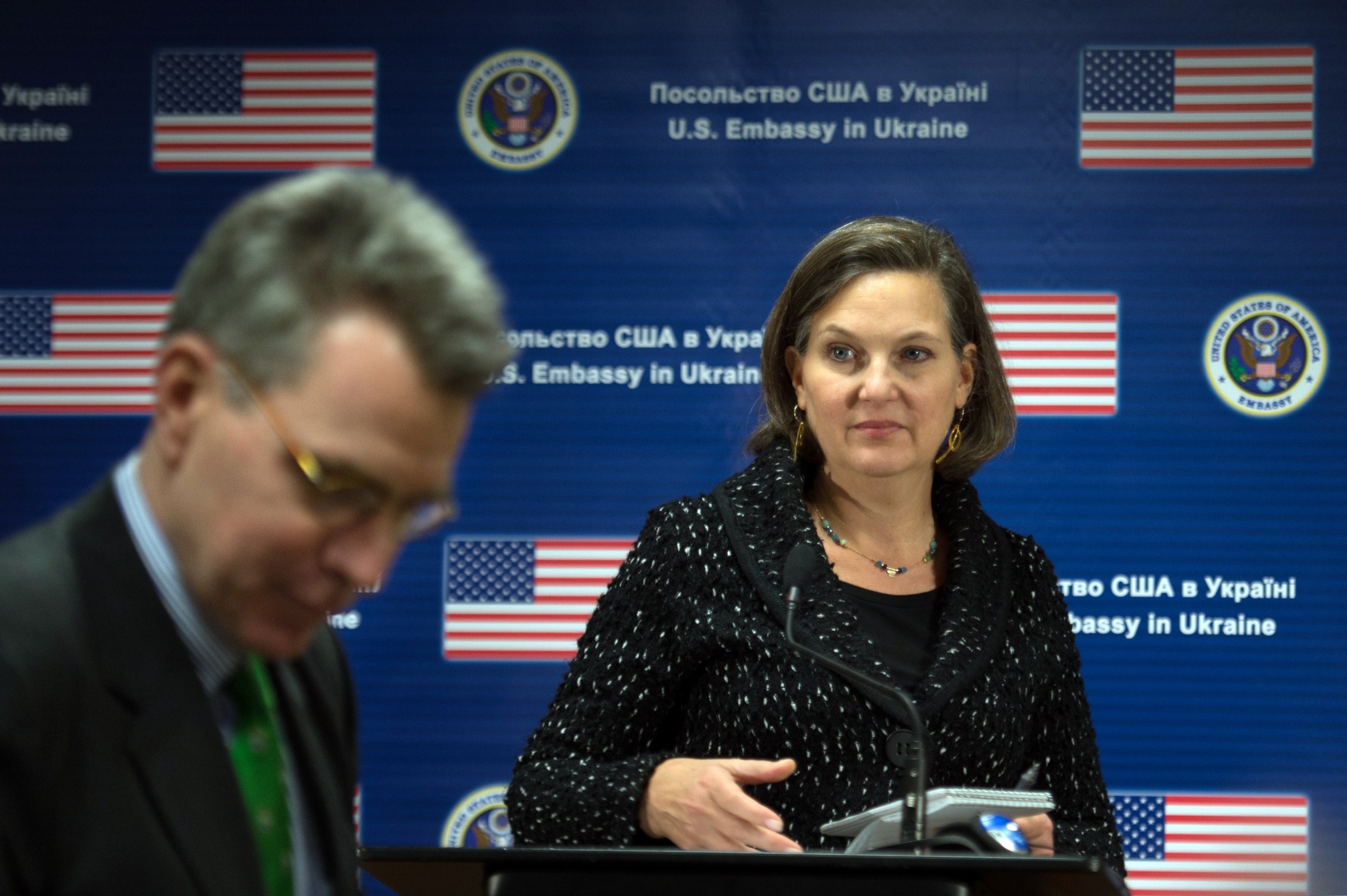
A little scandal has erupted at the State Department. Victoria Nuland, the top State official for Europe, used a vulgar expression regarding the European Union in a private conversation with the U.S. Ambassador to Ukraine, Geoffrey Pyatt, a taped version of which was leaked to the media.
Nuland has apologized. But rather than disclosing a shocking or surprising fact about Washington’s approach to relations between Eastern and Western Europe, the episode reinforces three very unshocking truths about the world of diplomacy.
1. The EU is cumbersome and slow. The crux of the Nuland-Pyatt conversation is about dispatching a UN-blessed diplomat to push a deal to defuse a long-running political crisis in Ukraine about whether that country should move closer to Western Europe or return to Russia’s orbit. The EU has been trying to help defuse the crisis, but in case you missed the last 70 years of trans-Atlantic history, the efforts to unite Western Europe for its mutual benefit and the advancement of humankind has been challenging. Often, conflicting interests among Western European countries have fueled crises that have in turn required the intervention of the United States. This is one of those cases.
2. Russia has an interest in damaging relations between Western Europe and the United States. For all our spats, the alliance between the U.S. and Western Europe remains one of the most powerful in history, and it constrains Russia in a number of ways. U.S. officials suspect the Nuland-Pyatt conversation was recorded by the Russians and released in order to foment conflict between the allies. This is not shocking, it is a reflection of one of the bedrock features of modern international relations: Russia spies on U.S. officials and uses the results to make diplomatic mischief in Europe.
3. Diplomats swear, especially the good ones. James Baker swore. Dick Armitage swore. Richard Holbrooke was a virtual dictionary of creative swearing. Being surprised at a diplomat swearing in private about foreign counterparts is like being surprised at journalists swearing in private about sources or editors. If every inadvertent disclosure of profanity by a diplomat (or a reporter) were punished, there wouldn’t be many good ones left.
Because these are all established features of diplomacy, nothing much is likely to come of the Nuland-Pyatt revelation. The only shocking thing would be if it did.
More Must-Reads from TIME
- Cybersecurity Experts Are Sounding the Alarm on DOGE
- Meet the 2025 Women of the Year
- The Harsh Truth About Disability Inclusion
- Why Do More Young Adults Have Cancer?
- Colman Domingo Leads With Radical Love
- How to Get Better at Doing Things Alone
- Michelle Zauner Stares Down the Darkness
Contact us at letters@time.com